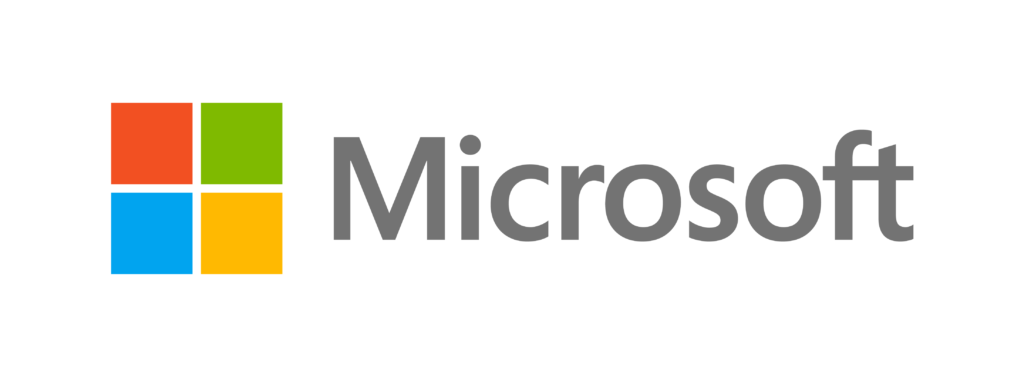
Microsoft has grown into one of the most influential technology companies, shaping the modern world through its software, hardware, and cloud services. From its humble beginnings as a software startup in the 1970s to its dominance in the tech industry today, Microsoft’s journey is a story of continuous innovation and adaptation.
Table of contents
- 1. The Birth of Microsoft: Revolutionising Personal Computing
- 2. Windows OS: A Pioneering Software Platform
- 3. Office Suite: Streamlining Productivity for Billions
- 4. Cloud Computing: Leading the Charge with Azure
- 5. Microsoft’s Hardware Evolution: From Surface to Xbox
- 6. Artificial Intelligence and Future Technologies
- 7. Corporate Social Responsibility and Sustainability Efforts
- 8. Challenges and Controversies Along the Way
- 9. Microsoft’s Future: What Lies Ahead?
1. The Birth of Microsoft: Revolutionising Personal Computing

In 1975, Bill Gates and Paul Allen founded Microsoft with a vision to put “a computer on every desk and in every home.” They aimed to make software an integral part of the personal computing revolution, and it wasn’t long before they struck gold. Their big break came when Microsoft secured a deal to provide an operating system for IBM’s personal computers, leading to the creation of MS-DOS. This was the foundation for what would become the world’s most popular operating system: Windows.
Key Milestone: The release of Windows 1.0 in 1985 marked the company’s shift from command-line interfaces to graphical user interfaces, making computers more accessible to everyday users.
2. Windows OS: A Pioneering Software Platform
Windows has become synonymous with personal computing. With each iteration, from Windows 95 to Windows 11, Microsoft has introduced features that have transformed how users interact with their computers. The user-friendly interface, start menu, and taskbar made Windows the go-to choice for both consumers and businesses alike.
Impact on the Market: Windows OS currently powers over 75% of desktop computers worldwide, making it the most widely used operating system. Its adaptability and compatibility with a wide range of hardware have solidified its place in history as a market leader.
3. Office Suite: Streamlining Productivity for Billions
Microsoft Office, first launched in 1989, quickly became the standard for business and personal productivity. Word, Excel, and PowerPoint are now staples in most professional environments, streamlining workflows and enhancing collaboration. The introduction of Office 365 (now Microsoft 365) shifted the productivity suite to the cloud, giving users access to their documents and tools anywhere, anytime.
Transition to Cloud-Based Services: The shift from standalone licenses to a subscription-based model through Office 365 was a major change. This transition allowed Microsoft to continuously update its products, offering new features and security improvements to its users without requiring them to purchase new versions.
4. Cloud Computing: Leading the Charge with Azure
While Amazon Web Services (AWS) may have been the first major player in the cloud computing space, Microsoft’s Azure platform has grown rapidly to become one of the dominant forces in the industry. Azure provides cloud services, including data storage and AI tools, helping businesses of all sizes manage their IT infrastructure efficiently.
Market Position: As of 2023, Azure holds around 22% of the cloud market, positioning it as a key competitor to AWS. The flexibility and scalability of Azure’s offerings have made it a favorite among businesses looking to modernize their operations.
5. Microsoft’s Hardware Evolution: From Surface to Xbox
Though Microsoft is primarily known for its software, the company has also made significant strides in hardware. The Surface line of laptops and tablets, first introduced in 2012, is a prime example of this. These devices are known for their sleek design, innovative features, and versatility, making them popular among professionals and creatives alike.
The Xbox Impact: Microsoft entered the gaming console market in 2001 with the release of the Xbox. Since then, the Xbox brand has become a cornerstone of the gaming industry, competing directly with Sony’s PlayStation. The integration of Xbox with cloud gaming services like Xbox Cloud Gaming has strengthened Microsoft’s position in the gaming industry.
6. Artificial Intelligence and Future Technologies
Microsoft has positioned itself at the forefront of artificial intelligence (AI) and other cutting-edge technologies. Through its AI initiatives, including collaborations with OpenAI (the team behind ChatGPT), Microsoft aims to integrate intelligent services into its products like Azure AI, Microsoft 365, and even gaming.
Investment in Future Tech: With advancements in AI, augmented reality (AR) through HoloLens, and quantum computing, Microsoft is investing heavily in the future of technology. These efforts ensure the company remains relevant and competitive in the fast-evolving tech landscape.
7. Corporate Social Responsibility and Sustainability Efforts
Microsoft is not just focused on profits—it also aims to make a positive social and environmental impact. The company has set ambitious sustainability goals, including becoming carbon negative by 2030. It has also made significant strides in accessibility, ensuring that its products can be used by people with disabilities.
Notable Initiatives: Microsoft has pledged to remove all of its historical carbon emissions by 2050 and is working on various environmental programs, such as AI for Earth, to address global challenges like climate change.
8. Challenges and Controversies Along the Way
Despite its many successes, Microsoft has faced its fair share of challenges and controversies. In the late 1990s, Microsoft faced an antitrust lawsuit accusing it of monopolizing the PC market. Microsoft faced criticism for privacy issues with Windows 10 data collection and the dominance of its cloud services.
The Antitrust Battle: The U.S. Department of Justice sued Microsoft in 1998 for monopolistic practices, primarily focused on its bundling of Internet Explorer with Windows. The case eventually settled, marking a significant chapter in Microsoft’s history.
9. Microsoft’s Future: What Lies Ahead?
As Microsoft continues to evolve, its focus is on expanding its cloud services, AI, and gaming divisions. Microsoft’s acquisitions of LinkedIn and GitHub highlight its dedication to diversifying its portfolio and maintaining relevance across industries.
Looking Ahead: The future of Microsoft seems poised for continued growth, particularly in AI integration, cloud innovation, and expanding its hardware ecosystem. Under CEO Satya Nadella’s leadership, Microsoft is well-equipped to tackle challenges and seize opportunities in the evolving tech landscape.
Conclusion: A Legacy of Innovation
Microsoft’s journey from a small startup to a global tech leader is a testament to its innovation, adaptability, and vision. As Microsoft pushes the boundaries of technology, it drives change and shapes the future across various industries.
This comprehensive look into Microsoft highlights its significant milestones, innovations, and the role it plays in shaping the technology we use every day.
